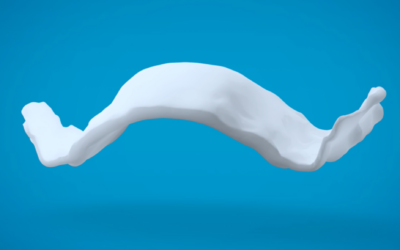Ear and temporomandibular joint (TMJ) pain are very common and complex issues that can often be misunderstood. In this blog post, we’ll debunk common misconceptions and shed light on the facts surrounding earaches and TMJ pain, helping you better understand these conditions and seek appropriate treatment.
Misconception 1: “TMJ” is a condition with the jaw.
Many individuals commonly use the term “TMJ” incorrectly to describe a group of jaw disorders or pain. In actuality, “TMJ” is just a shorter term referring to the temporomandibular joints themselves, which are the joints connecting the jawbones to your skull on each side of your head.
Misconception 2: TMJ Pain means I have TMJ Disorder
When someone is experiencing discomfort or tenderness in the TMJ, it is often referred to as TMJ pain. The actual condition is known as temporomandibular disorders, often abbreviated as TMD. Though TMJ pain is a prominent indicator of TMD, having jaw discomfort doesn’t always necessarily imply the presence of the condition.
Various factors, such as excessive strain on the jaws or oral health concerns like gum disease, can also contribute to TMJ pain. Conversely, TMD typically entails more than just jaw discomfort. Other symptoms of TMD include difficulty chewing or opening the mouth fully, clicking or popping sounds when moving the jaw, and headaches or earaches. TMD can be caused by a variety of factors, including jaw injury, arthritis, teeth grinding (bruxism), stress, or misalignment of the jaw joint.

Misconception 3: TMJ Disorder Only Affects the Jaw
TMD can manifest in various ways beyond just jaw discomfort. As was just mentioned, individuals with TMD may experience symptoms such as ear pain, headaches, facial pain, and clicking or popping sounds in the jaw joint. This highlights the interconnected nature of the TMJ with other structures in the head and neck.
Misconception 4: Ear Pain Always Indicates an Ear Infection
While ear pain can be a symptom of an ear infection, it can also be caused by issues related to the temporomandibular joint (TMJ). Dysfunction in the TMJ, such as misalignment or inflammation, can lead to referred pain in the ear. Therefore, it’s essential to consider both ear and TMJ health when evaluating ear pain.
Misconception 5: Earaches and TMJ Disorder Are Unrelated
The ear and TMJ are closely connected anatomically, with the TMJ located just in front of the ear canal (external auditory meatus). Dysfunction in the TMJ can sometimes cause referred pain to the ear, leading to confusion about the source of discomfort. Conversely, ear problems such as infections or inflammation can also contribute to TMJ pain. It’s essential to consider both ear and TMJ health when evaluating symptoms to ensure an accurate diagnosis and appropriate treatment.
Misconception 6: TMJ Pain Resolves on Its Own
While some cases of TMJ pain may improve with self-care measures such as applying heat or ice, many individuals require professional intervention to find relief. Habit correction, physical therapy, dental appliances, and medication are among the options available to address TMJ pain and disorder effectively.
Misconception 7: TMJ Disorder Only Affects Adults
TMJ pain and TMD can affect individuals of all ages, including children and adolescents. Factors such as jaw trauma, teeth grinding (bruxism), malocclusion, and stress can contribute to TMJ dysfunction at any age. Early detection and intervention are crucial for preventing long-term complications and improving outcomes in younger patients.
Misconception 8: Surgery is the Only Solution for TMD
While TMJ surgery may be necessary for severe cases when other treatments fail, it’s considered a last resort. Most often, TMJ disorder can be effectively treated with simple, conservative approaches. These include stress management techniques, physical therapy to strengthen jaw muscles, and orthodontic treatments or mouth guards, which target various causes of TMJ disorder. Our office facilitates these conservative approaches so you can avoid jaw surgery and live pain free.
Live Pain Free
Earaches and TMJ pain can be complex and challenging to understand. By debunking common misconceptions and presenting accurate information, we hope to empower individuals to recognize and address these conditions effectively. If you’re experiencing earaches or symptoms of TMD, don’t hesitate to seek evaluation and treatment from us at Daia Orthodontics & TMJ Orthopedics. If you’re not located near our office in Rochester Hills, MI, we recommend contacting a qualified healthcare professional in your area for personalized care and relief.
For more information about ear and TMJ pain or to schedule a free consultation, contact us today. Our experienced and specialized team is here to provide expert guidance and support on your journey to improved oral and overall health.




